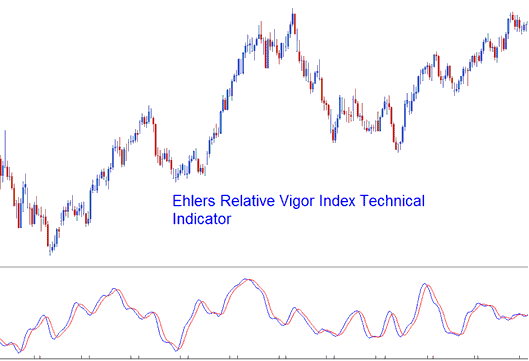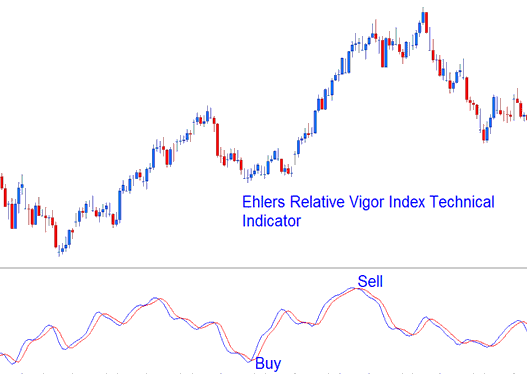RVI Technical Analysis & Relative Vigor Index Signals
Developed by John Ehlers
The Relative Vigor Index combines the older concepts of technical analysis with modern digital signal processing theories and filters to create a practical and useful indicator.
The basic principle behind it's simple -
- Prices tend to close higher than they open in up-trending markets and
- Prices close lower than they open in down-trending markets.
The momentum (vigor) of the move will therefore established by where the prices end up at the close of the candle. The Relative Vigor Index plots 2 lines the RVI Line and the signal Line.
The RVI index is essentially based on measuring of the average difference between the closing and opening price, & this value is then averaged to the mean daily trading range and then plotted.

This makes the index a responsive oscillator that has quick turning points which are in phase with the market cycles of prices.
FX Technical Analysis & How to Generate Signals
The Relative Vigor Index is an oscillator. The basic technique of interpreting the index is to use the crossovers of the RVI and the SignalLine. Signals are generated when there is a cross-over of the 2 lines.
Bullish Signals - a buy signal occurs when the RVI crosses above the Signal-Line.
Bearish Signals - a sell signal occurs when the RVI crosses below the Signal-Line.

Buy and sell signals generated using the cross over technique
